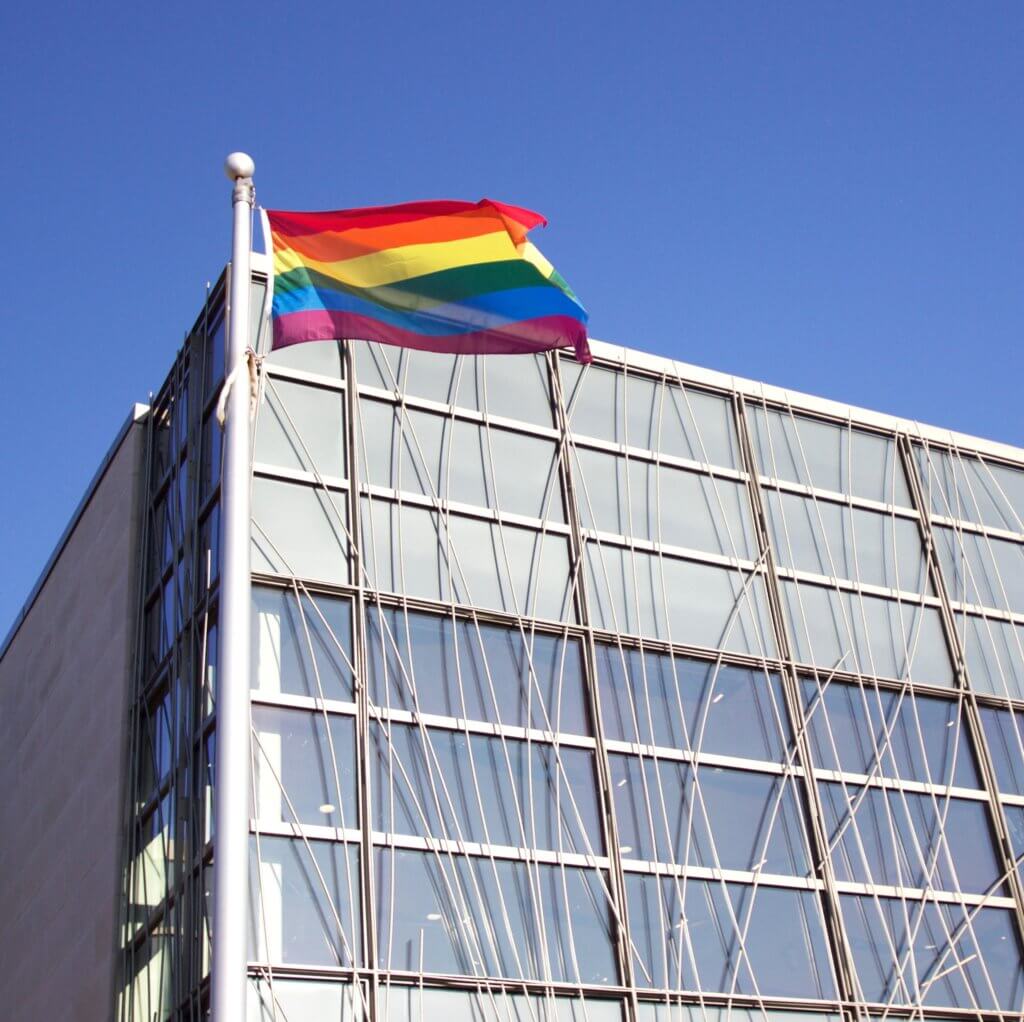Student voices on corporate and police involvement in Pride

On Sept. 17, Catalyst held a panel to discuss Pride and the LGBT2Q+ community. The panel was made up of four students – Gill Hill, Grace Wilson, Hannah Wickham and Kate Robotham – and was moderated by Ada Clevinger, the president of Catalyst. They discussed the history of Pride, what they think are the current issues within Pride and the best way to react to someone coming out to you.
Kate Robotham began the panel by talking about the history of Pride, specifically the Stonewall riots that took place in New York City on June 28, 1969. “There were police raids into the Stonewall Inn, [which was] a hub for LGBT people. There’s a long history of police raids on spaces that are safer for LGBT people, and so they rioted,” said Robotham.
“That’s the history. They weren’t always parades, they were riots. That’s why [Pride takes place] in June because that was when those riots happened,” added Robotham.
“I am naturally obligated to mention the Bathhouse raids,” said Wickham to follow up on Robotham’s point. “Bathhouses in Toronto were raided, and there were about four of them that were really violent.”
Bathhouses have historically been cruising spots for gay men to have sex and socialize. In 1981, Toronto police carried out a series of targeted raids on four bathhouses, which they called “Operation Soap.” Over 200 people were arrested on the rarely enforced charge of running or patronizing a brothel. The raids sparked protests against the unfair treatment LGBT2Q+ people regularly faced from police.
Robotham mentioned the significance of semi-public sex for LGBT2Q+ people: “If you have a system that doesn’t allow for people to form families in the way that they want to or you can’t bring your partner home because your parents won’t approve … [as a result] there have been and there continue to be spaces where people go to have gay sex because it’s not as accessible,” she said.
“What was important from that was [a] nearly instantaneous community response,” said Wickham, referring to the march protesting police brutality that took place the night after.
“I think a lot of people forget that Pride parades are still a protest, in a way, rather than just celebrating where we are now,” said Hill.
From there, the discussion turned to the presence of police at Pride today. “Ultimately [people who participate in Pride] agree to take our cues from Black Lives Matter, who several years ago stopped a parade and said, ‘We don’t want cops in Pride.’ If you look at Stonewall it was against the police.… They were the force to be reckoned with. And especially Black LGBT people face police violence so much,” said Robotham.
Robotham also noted that there are two sides to this complicated issue. “But then you get someone who’s like, ‘I’m a gay cop and I want to be at Pride and we’ll put some rainbows on our cop cars,’ ” she said. “That’s weird to look at and be like, “Oh, but you’re not necessarily the good guys in this story.”
The panel went on to discuss how Pride has changed since the 1960s. “It’s very corporate now; it’s very white; it’s very cis,” said Wilson. “There’s also a lack of Indigenous presence at Pride [and] it goes back to the issue of white-washing Pride. And the more radical your Pride is the less corporate involvement there might be, so it really reveals the motives of those organizing Pride.”
The panel also discussed the best way to react to someone coming out to you.
Robotham recommended saying something along the lines of “Thank you for telling me. I still care about you. Thank you for trusting me, and cool.” She also mentioned that saying, “Oh, I already knew” isn’t the best response.
“Many people tell their parents and the response is, ‘Oh, I didn’t want this life for you’ and that’s not what they should say because it sounds like ‘I don’t want you to be this,’ ” Robotham said. “Some people try to say, ‘But I want your life to be easy,’ but it’s not; life isn’t easy.”
“Does discrimination still exist? Spoiler, yeah,” said Wilson. “People feel unsafe in our community and when we have a Pride that’s all about a celebration for our identities that’s awesome, but I also think sometimes we need to address the fact that our community is not perfect.”
Disclaimer: Ada Clevinger and Gill Hill currently hold staff positions at the Argosy.





